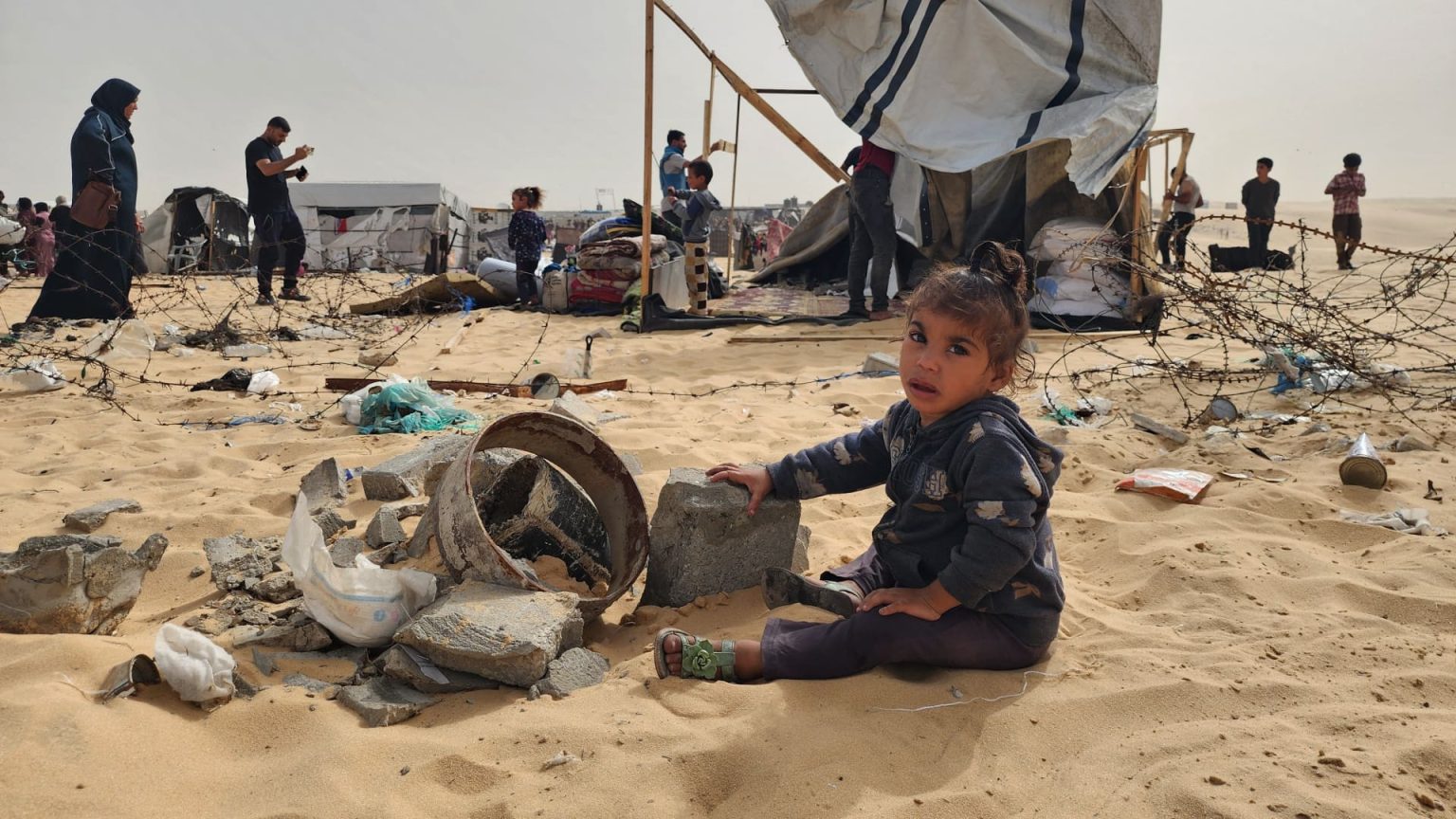Global leaders have expressed shock and outrage over an Israeli military attack on the southern Gazan city of Rafah that resulted in the deaths of over 45 people, including children, at a tent camp for displaced Palestinian refugees. The Israel Defense Force claimed to have used “precise munitions” and “intelligence” to target two senior Hamas leaders in the area, but investigations are ongoing amidst reports of a fire that engulfed the camp, causing destruction and loss of life. French President Emmanuel Macron condemned the attack and called for an immediate ceasefire, emphasizing the need for respect for international law and the protection of Palestinian civilians.
Italian Defense Minister Guido Crosetto also criticized the attack, stating that innocent men, women, and children should not be caught in the crossfire of conflict between Israel and Hamas. While the U.S. expressed sadness over the heartbreaking images from the attack, it stopped short of demanding a halt to the operation, citing Israel’s right to defend itself against Hamas. However, the U.S. urged Israel to take all possible precautions to avoid harming civilians in its military actions. Israeli Prime Minister Benjamin Netanyahu described the attack as a tragic mistake and emphasized the efforts made to evacuate non-combatants from the area, despite the tragic outcome of the operation.
The attack in Rafah took place shortly after the International Court of Justice called on Israel to immediately halt its military offensive in the region due to the dire humanitarian situation. Despite the court’s ruling, Israeli airstrikes continued to target parts of Rafah, with tanks reaching the city center soon after. The ICJ does not have direct enforcement capabilities for its orders, leaving the situation in Rafah in a precarious and volatile state. The ongoing violence in the region underscores the challenges faced by civilians caught in the conflict between Israel and Hamas, with international leaders calling for an end to the bloodshed and a renewed commitment to upholding human rights and international law.
The escalation of violence in Rafah has sparked widespread condemnation from global leaders, including calls for an immediate ceasefire and respect for the rights of Palestinian civilians. The tragic loss of life, including children, in the tent camp for displaced refugees has drawn attention to the devastating impact of the conflict on innocent bystanders. Despite the justifications provided by Israel for its military actions, there is growing concern over the disproportionate force used and the failure to protect non-combatants in the region. The international community must play a role in facilitating peace talks and addressing the root causes of the conflict to prevent further loss of life and suffering in Rafah and other areas affected by the Israeli-Palestinian conflict.
The Israeli military’s targeting of senior Hamas leaders in Rafah has raised questions about the efficacy of such operations in achieving long-term stability and security in the region. The cycle of violence and retaliation between Israel and Hamas has led to a humanitarian crisis in Gaza, with civilians bearing the brunt of the conflict. Leaders like Macron, Crosetto, and others have emphasized the need for dialogue and diplomatic solutions to address the underlying grievances and move towards a lasting peace agreement. The international community must exert pressure on both sides to de-escalate tensions and prioritize the well-being of civilians in conflict zones like Rafah, where lives are at risk and human rights violations are rampant.
As the situation in Rafah continues to deteriorate, with ongoing military operations and civilian casualties, the urgency of finding a peaceful resolution to the Israeli-Palestinian conflict grows more critical. The devastating impact of the recent attack on the tent camp for displaced refugees serves as a stark reminder of the human cost of war and the need for all parties involved to prioritize the protection of civilians. Global leaders must use their influence to push for an immediate ceasefire, humanitarian aid for those affected by the violence, and a renewed commitment to dialogue and negotiation as the only viable path towards lasting peace in the region. The tragedy in Rafah should serve as a wake-up call for the international community to redouble its efforts in ending the cycle of violence and promoting a just and sustainable future for all people in the Middle East.


